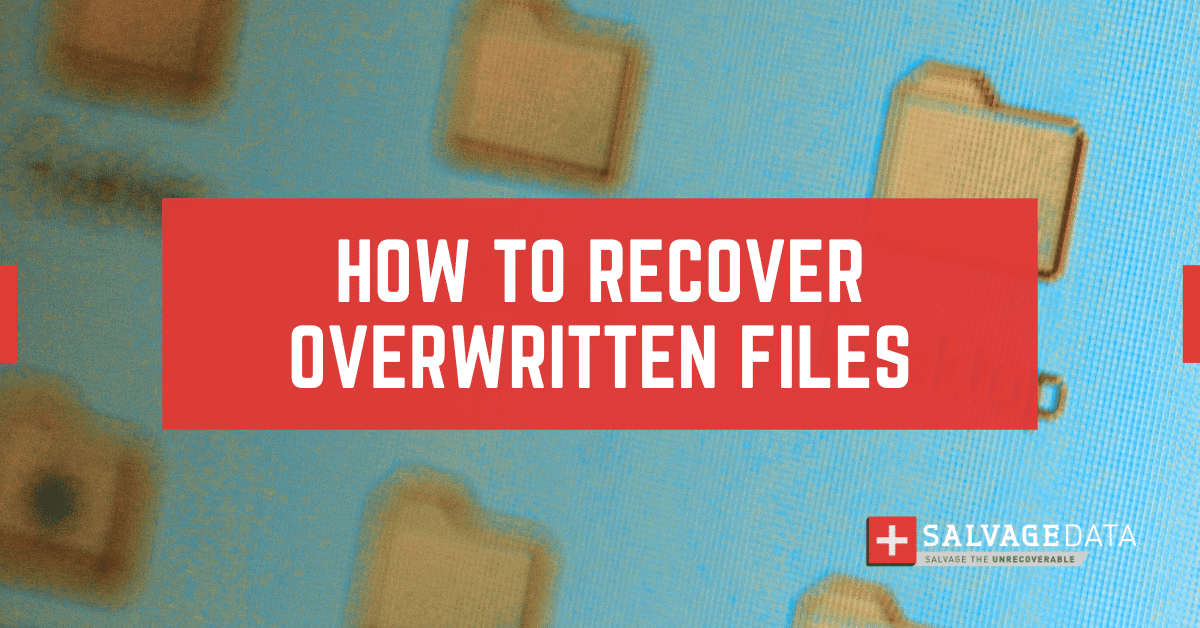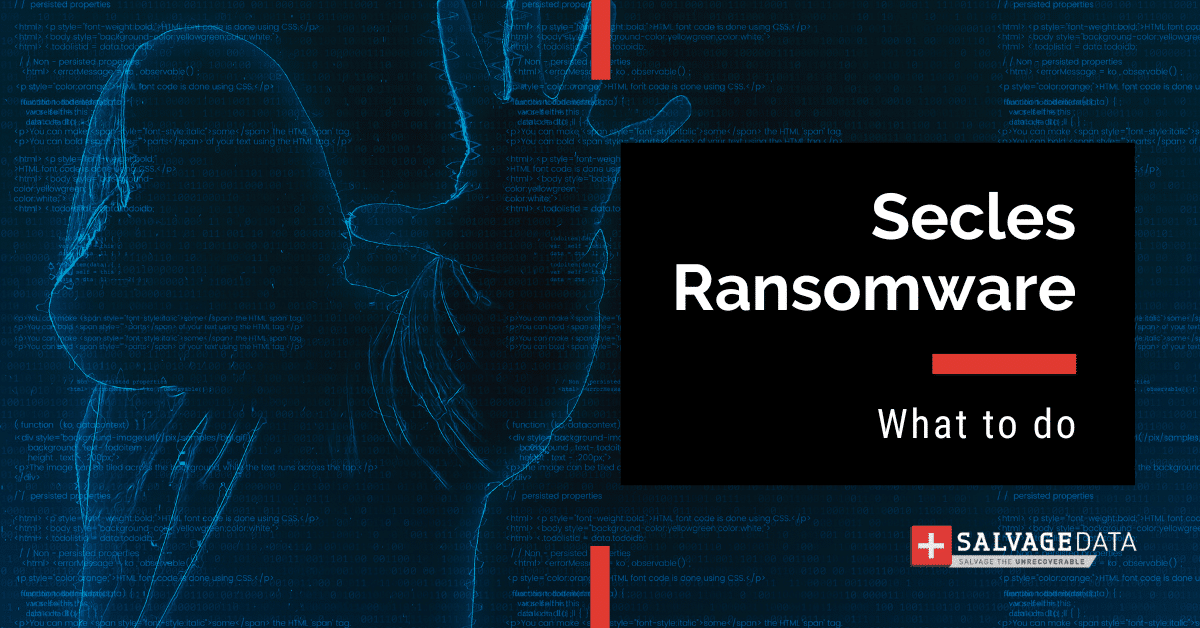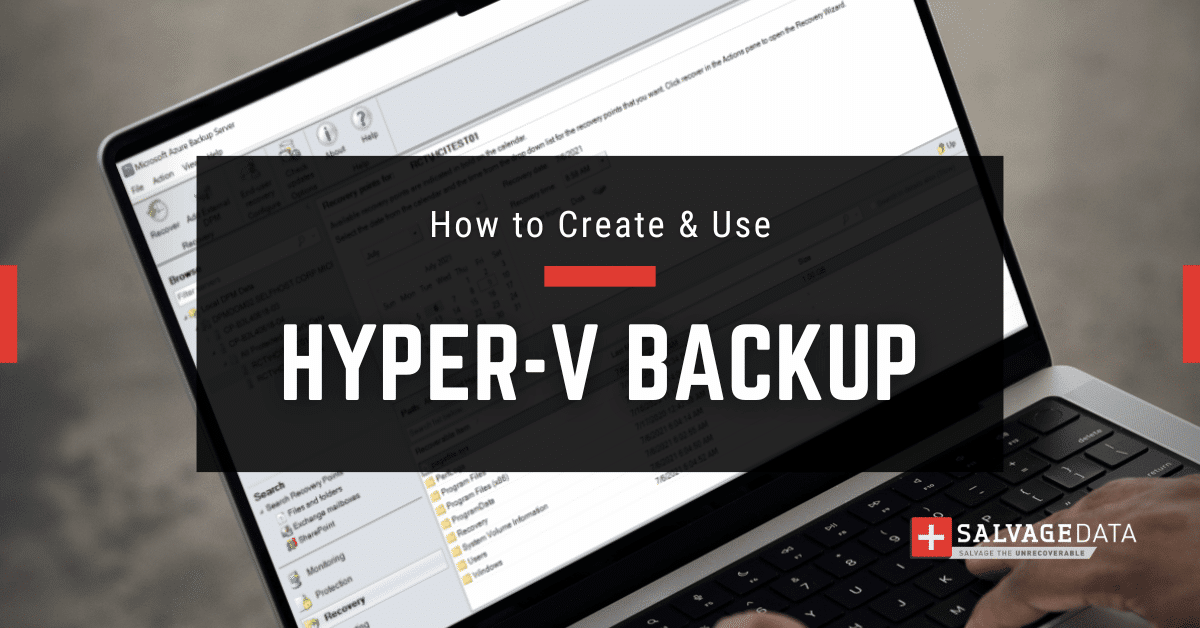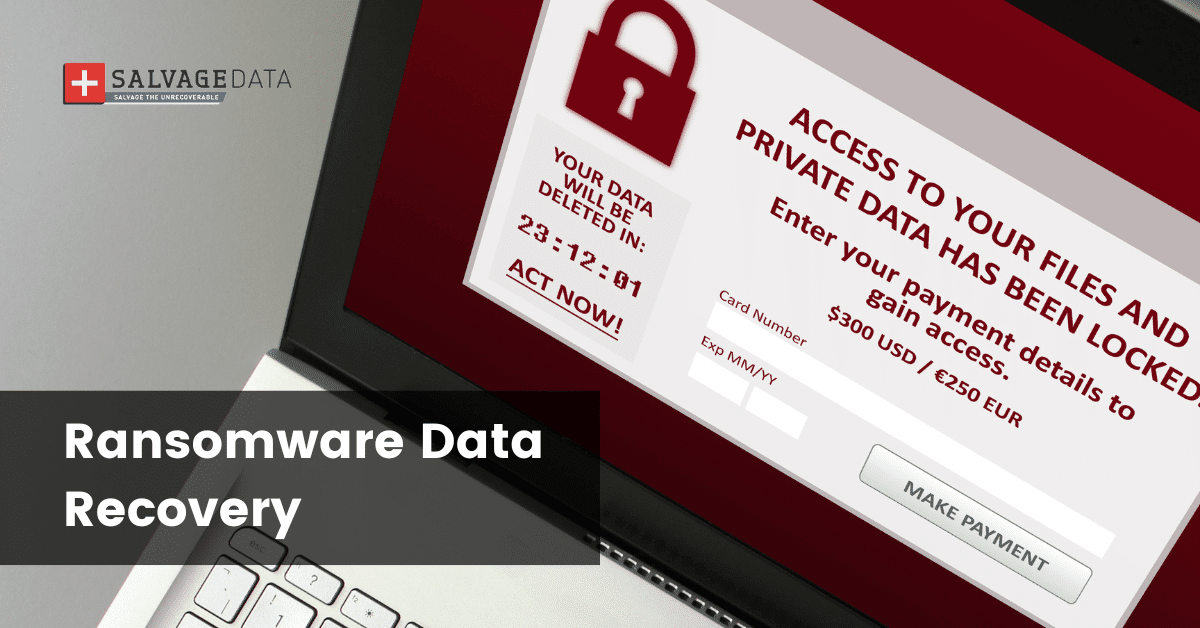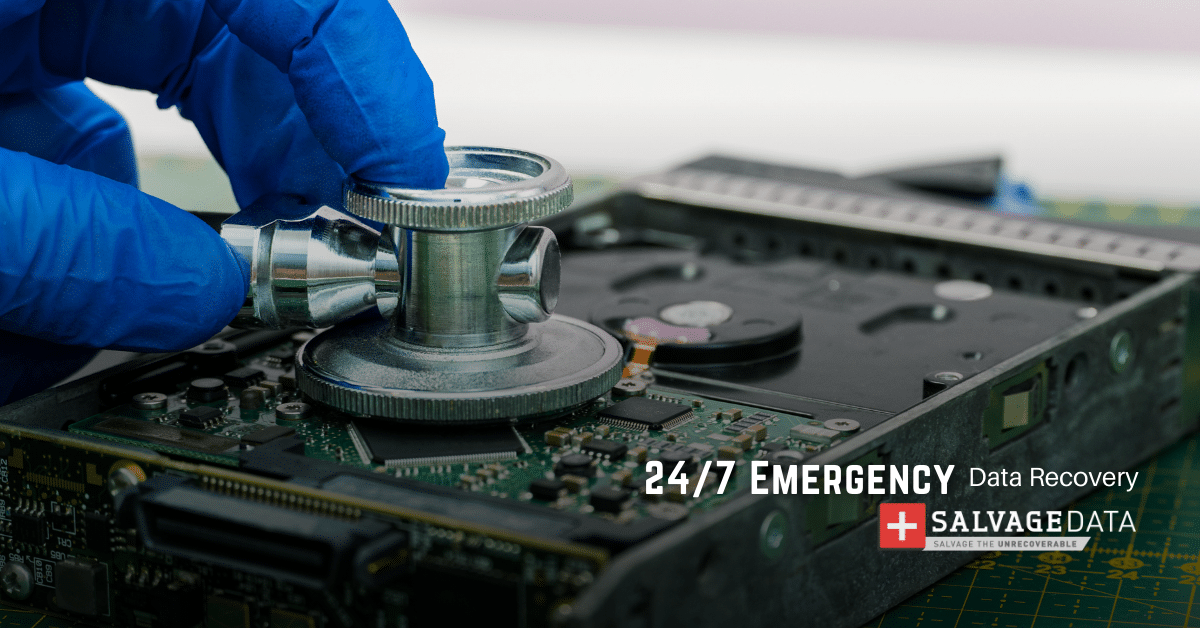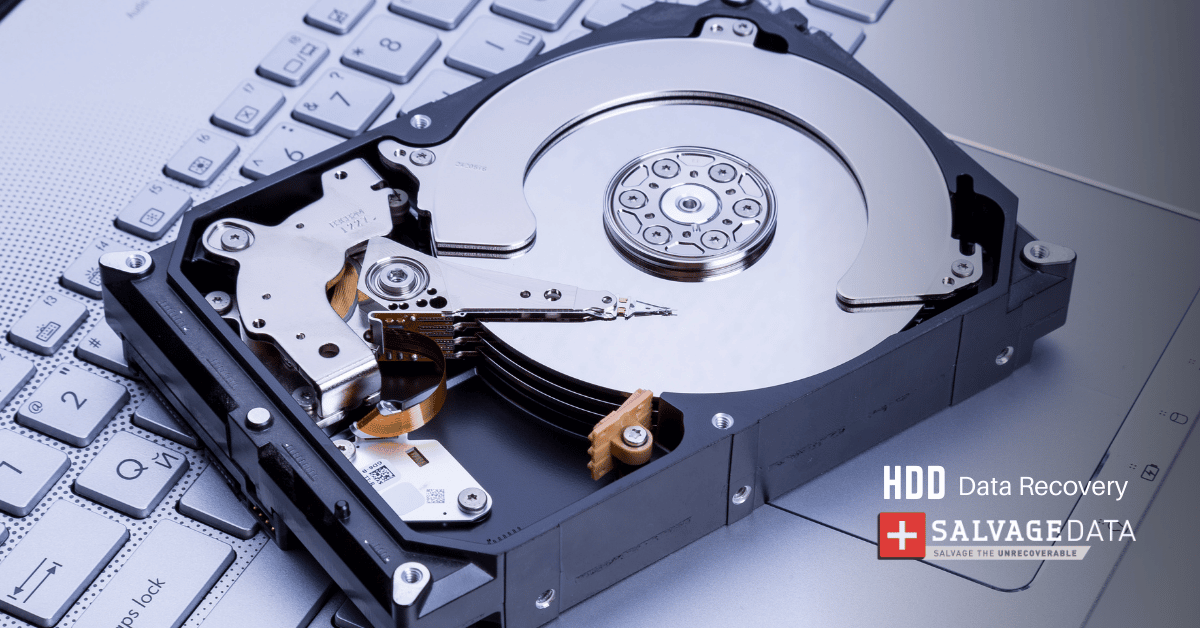Recent Articles
How To Recover Overwritten Files
The Snowflake Data Breach: A Comprehensive Overview
Mac Not Recognizing External Hard Drive: Quick Fix Solutions
How Multi-Cloud Backup Solutions Can Prevent Data Disasters
Capibara Ransomware: What is it & How to Remove
What Should a Company Do After a Data Breach: The Ticketmaster Incident
Secles Ransomware: Removal Guide
What To Do When Your Chromebook Freezes
How to Create Hyper-V Backup
What Is The Best Data Recovery Software For PC

I think there's an issue with my storage device, but I'm not sure Start a free evaluation →
I need help getting my data back right now Call now (800) 972-3282
What is NxRansomware Ransomware?
NxRansomware is a type of ransomware that encrypts your files and demands a ransom for the decryption key. NxRansomware uses strong encryption algorithms, which makes it difficult to decrypt your files without the decryption key. It is distributed through email attachments, malicious websites, and exploit kits. Once NxRansomware encrypts your files, it will append the “.nxt” extension to the encrypted files. Also, it will create a text file named “NX_DECRYPT_INSTRUCTIONS.txt”, which contains instructions on how to decrypt your files.
This ransomware demands a ransom of 1.5 Bitcoins (approximately $1100) for the decryption key. NxRansomware also threatens to delete your files if you do not pay the ransom within 72 hours.
What types of files does NxRansomware encrypt?
NxRansomware will encrypt a variety of files, including:
- Documents
- Photos
- Videos
- Music
NxRansomware is sophisticated ransomware that should be avoided at all costs.
Protection
There are several things you can do to protect yourself from NxRansomware and other ransomware:
- Install and update an anti-virus/anti-malware program: This will help prevent malware from infecting your computer in the first place. We recommend using Malwarebytes Anti-Malware.
- Be cautious when opening email attachments: Email is one of the most common ways for malware to spread. Be wary of email attachments, even if they come from someone you know. If you are unsure about an attachment, scan it with your anti-virus program before opening it.
- Avoid clicking on links in email messages: Malicious links in email messages are another common way for malware to spread. Avoid clicking on links in email messages, even if they look legitimate. If you are unsure about a link, hover over it with your mouse to see where it will take you before clicking on it.
- Keep your operating system and software up-to-date: Out-of-date software can be full of security holes that malware can exploit. Make sure you have the latest versions of your operating system and all of your software programs.
- Don’t follow links from untrustworthy websites: Malicious websites can infect your computer with ransomware just by visiting them. Only visit websites that you trust, and be careful even then. If you are unsure about a website, do a quick web search to see if it is safe before visiting it.
- Use strong passwords: Using strong passwords makes it more difficult for attackers to gain access to your account.
- Back up your files: This is the best way to protect your files from ransomware. Keep a backup of all your important files in a safe location, such as an external hard drive or cloud storage service. That way, if you do get infected with ransomware, you can just delete the encrypted files and restore them from the backup.
History
NxRansomware was first discovered in June 2017. NxRansomware is a variant of RAA Ransomware, which was first discovered in April 2017. NxRansomware uses the same encryption algorithm as RAA, which is a modified version of the AES encryption algorithm.
How to remove NxRansomware?
If attackers have infected you with this ransomware and you want to remove it from your computer, we recommend using Malwarebytes Anti-Malware. It is a free program that can detect and remove the ransomware and other types of malware.
To use Malwarebytes Anti-Malware, follow these steps:
- Download Malwarebytes Anti-Malware from the link below.
- Save the file to your Desktop and double-click on it.
- Click “Yes” when prompted.
- Follow the on-screen instructions to install Malwarebytes Anti-Malware.
- Once installed, Malwarebytes Anti-Malware will automatically start and you will see a message stating that you should update the program and that a scan has never been run on your system. To start a system scan you can click on the “Scan Now” button.
- Malwarebytes Anti-Malware will now start scanning your computer for NxRansomware and other types of malware. This process can take a while, so we suggest you do something else and come back to the program when it is finished.
- When Malwarebytes Anti-Malware is finished scanning your computer, it will display a list of all the malware that it has found. Click “Remove Selected” to remove all the malicious files from your computer.
What should you do?
If you do get NxRansomware or other ransomware on your computer, there is no guaranteed way to decrypt your files. However, you may be able to decrypt your files without paying the ransom by using one of the following methods:
- Restore your files from a backup: This is the best option if you have a recent backup of your files. Simply restore your files from the backup and you will not need to pay the ransom.
- Use a decryptor tool: Some decryptor tools can decrypt certain types of ransomware. However, there is no guarantee that a decryptor tool will work, and it may not work for this ransomware.
- Try to decrypt your files with free decryption software: Some free decryption programs can decrypt certain types of ransomware. However, there is no guarantee that a free decryption program will work, and it may not work for NxRansomware. Anyway, it’s always worth a try.
So, is there a public decryption tool available for NxRansomware?
At this time, there is no public decryption tool.
If you do not have a backup of your files or if a decryption tool does not work, you will need to decide whether to pay the ransom. We recommend against paying the ransom because it encourages the criminals and there is no guarantee that they will give you the decryption key even if you do pay. However, the decision is up to you.
SalvageData data recovery software is an industry leader in providing NxRansomware file recovery software.
Contact a data recovery service
If you want to try to recover your files without paying the ransom, you can contact a data recovery service. Data recovery services specialize in recovering files from ransomware infections and may be able to help you recover your files. Also, data recovery services may help you even if you have not backed up your files and even if there is no public decryptor available or a decryptor tool does not work or a data recovery software does not work.
SalvageData Recovery Services may help you, even if all other methods fail.
SalvageData is the industry leader in NxRansomware data recovery. We have successfully recovered data from thousands of NxRansomware encrypted drives.
If you would like to learn more about how we can help you recover your data, please contact us for a free consultation. We will be happy to answer any questions you have and provide you with a no-obligation quote.
So, if NxRansomware has hit you, do not panic! The first thing you should do is disconnect your computer from the internet to prevent the NxRansomware from encrypting any more files. Then, contact our NxRansomware data recovery experts for a free consultation. We can help you too.

